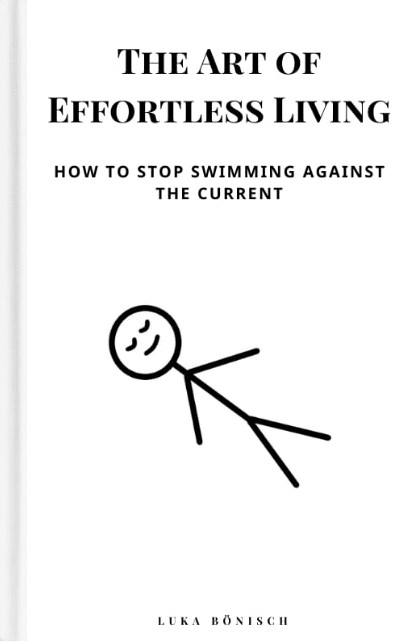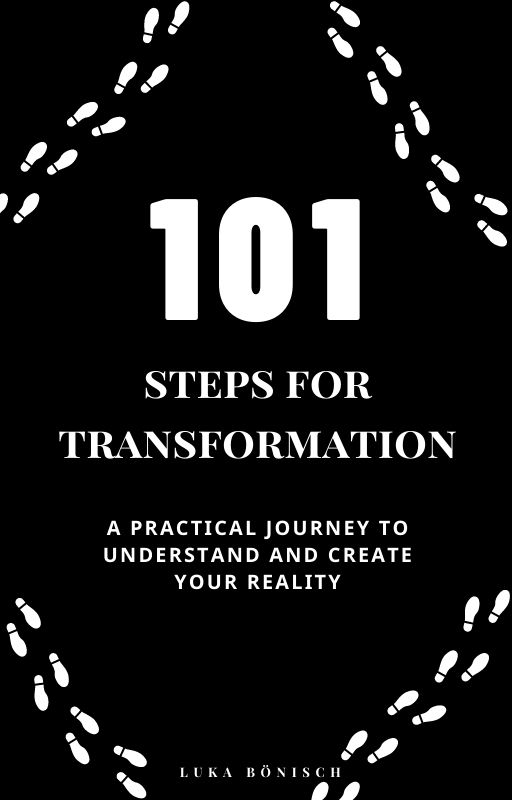Since I first started on my path to grow and become my best version, I was always looking for good habits I can implement to improve my life.
Some of the habits, such as a regular workout routine, stuck with me for a long time and some I discarded because they didn’t serve me anymore.
While it is always beneficial to have good habits and a routine, good habits can have a downside that is not often talked about.
The more I started to focus on my routine and habits the more a shadow aspect was evolving. And the thing is, I wasn’t aware of this shadow aspect until my good habits were interrupted for some reason.
“The chains of habit are too weak to be felt until they are too strong to be broken.” – Samuel Johnson
The following downsides of good habits seem similar so that they all look like the same downside.
Nonetheless, I divided them into five to focus on the different nuances.
In the end, you will find easy to implement tips to prevent the possible downsides
Addiction/Dependency

When I first started to implement a healthy diet, my body started to feel better every day. I would feel good every time I ate a healthy meal and the longer I would keep this up the better I felt.
But then came the downside…
Everyone who likes to create routines of good habits knows how addictive this can become. You become dependent on the positive effects of habits.
It sounds a little bit odd because isn’t that what you want from a good habit, to feel better?
Well, yes but with everything that can make you feel better, there is always the other polarity, making you feel worse.
“An over-indulgence of anything, even something as pure as water, can intoxicate.” – Criss Jami
And that’s exactly what I have experienced. Whenever I would eat something that wasn’t healthy, or at least I thought wasn’t healthy, I would feel guilty.
Sometimes this would even lead to indulgence into guilt. More so, whenever I knew I was about to eat something unhealthy I feared feeling guilty.
This then led to an obsessive counteracting of me “cheating “on my good habit. I would then for example workout longer or do extra cardio, not because I thought it was good for me, but to rid myself of the guilt.
The thing with habits is, they are not something physical per se. Habits are concepts formed in our mind that involve doing things. And simply the regular doing of a thing then becomes the desired good habit.
So, we often don’t think of the habit of being addictive, only the thing that is involved in this habit.
This leads me to the next point.
Attachment
“The fixity of a habit is generally in direct proportion to its absurdity.” – Marcel Proust
In my experience, you can also ‘only’ be attached to specific habits.
Meaning the habits you have been doing for such a long time that you feel attached to them.
It sounds similar to addiction but there is a fine distinction.
You can be attached to something but not addicted. Therefore, attachment often precedes addiction.
Let me give you an example most of us are familiar with: breakfast.
I was a breakfast lover, and I still like a good breakfast at times. I ate breakfast every morning because I thought it was the normal, healthy thing to do. According to the major belief that breakfast is the most important meal of the day.
But when I first discovered the benefits of fasting and that I actually felt better when I skipped breakfast, I questioned that belief.
However, because breakfast was my favorite meal of the day it was hard to let go of it, even though I knew I’ll feel better when I skip it.
And I’m not trying to devalue breakfast. Breakfast can be a good habit for some and a bad habit for others.
My point is that we can get so attached to a habit that we don’t question the usefulness of that habit.
It may turn out that the habit you have been doing for so long, isn’t the best for you. That’s where we should be able to keep an open mind and discard habits that don’t serve us anymore.
This can be especially hard when a habit is part of our identity.
Identification

“Sometimes I get the feeling that we’re just a bunch of habits. The gestures we repeat over and over, they’re just our need to be recognized. Without them, we’d be unidentifiable. We have to reinvent ourselves every minute.” – Nicole Krauss
We tell other people things about us that we believe will accurately represent who we are.
Humans tend to identify with what they have, do, and know.
When we do something every day or most days it is tricky to not identify with it. It’s not as if we consciously decide to identify with something now.
Perhaps you don’t even realize that you have identified yourself with something before you are threatened by losing it.
As soon as you have identified with a good habit it is harder to let go of it. Like being attached to a habit, identification will make it more difficult to keep an open mind.
Because this can feel like abandoning a part of yourself.
Habits are good but we should always keep in mind that on the deepest level we are not our habits.
And even if we assumed, we are our habits, we should still have enough freedom to change our habits whenever it seems appropriate.
Autopilot
Another realization I had was that the benefit of my good habits decreased over time.
And the reason for that is that after a while I just went through the motions instead of being completely present.
This happened to me when I first got into meditation.
In the beginning, I was really committed and experienced a lot of positive benefits.
But after my first few months of meditation, I would just sit down, let my mind wander for a few minutes, and then go on with my day.
As you might know, that isn’t the best way to meditate.
The positive side is, that when I realized my Autopilot mode, I was able to counteract it. How did I do it? With intention (more on that later).
Nonetheless, meditation was and still is the best habit I have implemented in my day. I can recommend it to everyone.
Check out my simple guide to start with meditation.
Anyway, it became clear to me that this was happening to many habits I implemented. They would start to run on Autopilot and subsequently lose their effectiveness.
Not only can habits make you run on Autopilot but also make you more rigid.
Rigidity

Because of the earlier points, you can see how good habits can make you rigid.
When your day is full of habits that are set for certain times, there is less room for spontaneity.
That is when your habits are really important to you.
A routine of good habits can be a problem when we start to see life as just a sequence of habits.
But we should not neglect life’s invites for unexpected experiences. We should not skip on possible adventures just because we don’t want to skip a habit for one day.
This is probably not even because we believe it’s unhealthy to skip it for one day, but for the fact that we want full attendance.
At least that’s what it was for me.
I was so deeply involved in my routine that I barely left any room for life to intervene.
The question then arises, what to do against the possible downsides?
How to Prevent The Downside of Good Habits
Stray from Your Routine Once in a While
Habits are good but we should make room for life to happen.
For that reason, it’s important to stray from our routines once in a while, even if it’s just for one day.
That way you will make sure that you are governing your habits and not your habits you.
Skipping on your routine for one day won’t destroy the progress you have made. But it can help you to prevent from falling into the traps mentioned earlier.
Remember Your Intention
Before you are about to go through your routine or a habit, briefly remember why you are doing this.
When you keep your intention in mind you won’t waste your time with habits that you either don’t enjoy or that don’t serve you anymore.
Be Present
Being present will keep your habits powerful and prevent Autopilot mode.
Change Your Habits
The only constant in life is change.
Everything, including you, is changing and evolving. Therefore, your habits should evolve with you.
This doesn’t mean to change your habits every week, but reevaluate them regularly and see if they could use an update.
△△△
“The beauty of an action comes not from its having become a habit but from sensitivity, consciousness, clarity of perception, and accuracy of response.” – Anthony De Mello
Luka
Latest posts by Luka (see all)
- The Maelstrom Called You — Why Every Person Is Ecelctic - July 17, 2025
- How to Use Words Correctly - July 8, 2025
- Guilty Until Imagined Innocent - June 25, 2025


